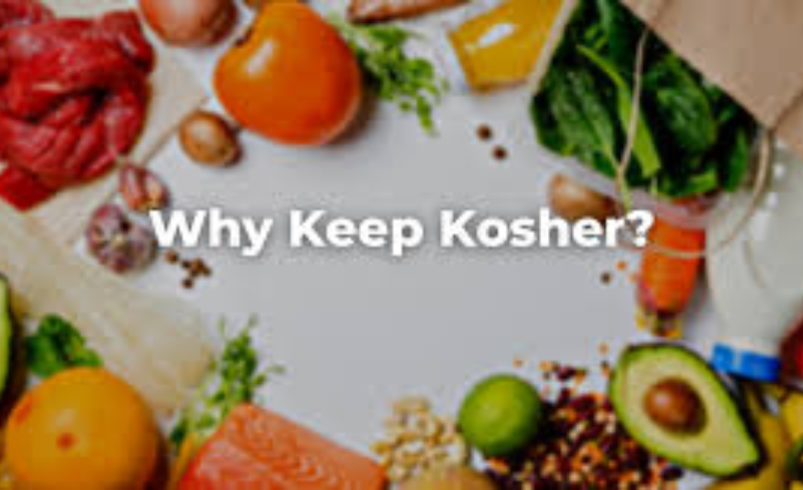Why a Kosher Certificate Can Transform Your Business
- March 29, 2025
- 0
As the demand for ethically sourced and safe food products continues to grow, businesses are turning to Kosher certification to meet the needs of a conscientious and diverse

As the demand for ethically sourced and safe food products continues to grow, businesses are turning to Kosher certification to meet the needs of a conscientious and diverse consumer base. Whether you are in the food industry or a consumer looking for trustworthy products, understanding the importance of a Kosher certificate can open doors to new opportunities, better consumer trust, and an expanded market. Here’s why it matters and how it can benefit your business.
A Kosher certificate is an official acknowledgment that a food product adheres to the laws of kashrut—the dietary guidelines of Jewish law. These laws govern everything from the ingredients used to how food is prepared, processed, and consumed. A kosher certificate signifies that a product has been carefully inspected and complies with these regulations, ensuring it is suitable for those who observe Jewish dietary practices.
For businesses, earning a Kosher certificate means gaining access to a new demographic of customers while reinforcing a commitment to quality, safety, and ethical standards.
Obtaining a Kosher certificate provides a range of benefits for businesses in the food industry. Here’s why it’s worth the investment:
A Kosher certificate helps your business reach a much wider audience. Jewish communities around the world specifically seek kosher-certified products, and many non-Jewish consumers prefer kosher items for ethical or health reasons. The demand for kosher food is substantial, particularly in regions like the United States, Israel, and Europe. By obtaining certification, your products can be marketed to an entire new group of consumers, potentially expanding your business globally.
In a crowded market, consumer trust is everything. A Kosher certificate is a symbol of your commitment to following strict guidelines for food safety, cleanliness, and ethical sourcing. It demonstrates to customers that your products are held to the highest standards, not only meeting food safety regulations but also ensuring humane production practices. This builds confidence and loyalty among your existing customer base while attracting new ones.
For many consumers, the decision to purchase kosher products stems from ethical and environmental considerations. Kosher laws emphasize humane practices, especially regarding the slaughtering of animals, making kosher products an appealing choice for customers who prioritize sustainability and animal welfare. By earning a Kosher certificate, you can market your products as ethically sourced, which is increasingly important to a wide range of consumers today.
Kosher certification is not just about following religious laws; it’s also about maintaining high standards of food safety and cleanliness. Kosher certification agencies require businesses to follow rigorous practices for handling, preparation, and storage. As a result, kosher products often have higher levels of consistency, cleanliness, and overall quality. This can improve the reputation of your business and increase customer satisfaction.
Earning a Kosher certificate requires several steps, but it’s a straightforward process if you work with the right certifying agency:
Choose a Reputable Certifying Agency: You will need to partner with a recognized kosher certification agency. These organizations have the expertise to guide you through the process and ensure that your product meets kosher standards.
Facility and Ingredient Inspection: Once you’ve applied for certification, a kosher inspector will visit your production facility. They will examine all ingredients, equipment, and production processes to ensure there’s no contamination with non-kosher foods.
Approval and Certification: After the inspection, if your product meets all the requirements, the agency will issue your Kosher certificate. This certificate allows you to display the kosher symbol on your product packaging, which assures customers of its authenticity.
Ongoing Compliance: Kosher certification is not a one-time process. Businesses must undergo regular inspections to maintain their certification and ensure continued compliance with kosher guidelines.
To help consumers easily identify kosher products, certifying agencies issue distinct kosher symbols, or hechsher. Some of the most common kosher symbols include:
OU (Orthodox Union): One of the most widely recognized kosher symbols globally.
OK: A well-respected certification agency that ensures food meets kosher standards.
Star-K: A kosher symbol that’s commonly seen in the U.S. market.
Kof-K: Another prominent certification symbol recognized by kosher consumers.
These symbols let consumers quickly verify that a product has been certified kosher and is safe for consumption according to Jewish dietary laws.
For businesses, obtaining a Kosher certificate is a valuable investment that can expand your market reach, build customer trust, and enhance your product quality. It opens doors to new customers who prioritize ethical practices and food safety. For consumers, a Kosher certificate ensures that the products they purchase adhere to high standards of quality, safety, and ethics.
Whether you are looking to expand your business into new markets or simply want to provide your customers with the best possible product, obtaining a Kosher certificate is an essential step in today’s competitive food industry.